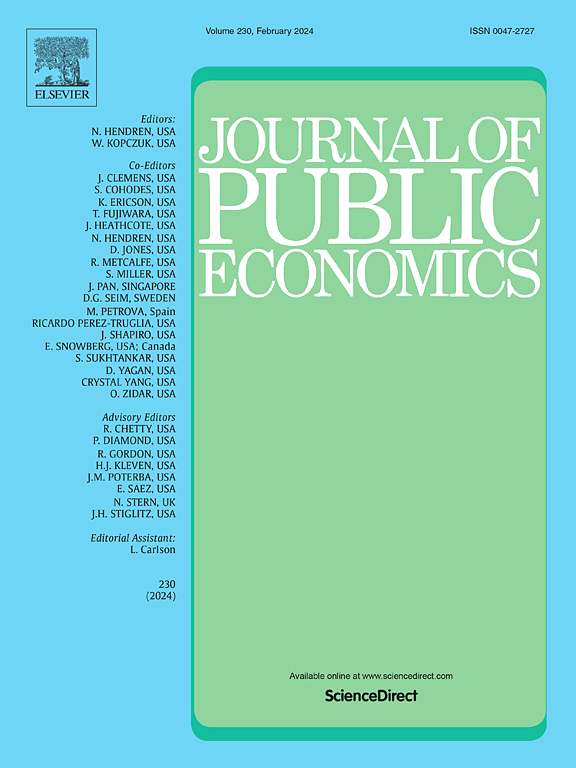目前的政治偏见和自我承诺的条约
IF 3.4
1区 经济学
Q1 ECONOMICS
引用次数: 0
摘要
我们研究国际环境协定如何利用国内时间不一致的问题。政策制定者往往希望未来的政策是可持续的,但在执政期间却倾向于减少投资。我们发现,在优惠政策具有时间一致性的情况下,特别是在政治环境不稳定、两极分化、国际溢出效应有限的情况下,签约国的均衡数量要高于优惠政策。这一模式还解释了为何各国会参与那些授权不随联盟规模而变化的条约,以及为何即使美国退出《巴黎协定》(Paris Agreement),联盟也不会瓦解。本文章由计算机程序翻译,如有差异,请以英文原文为准。
Present bias in politics and self-committing treaties
We study how international environmental agreements can take advantage of domestic time-inconsistency problems. Policymakers often prefer future policies to be sustainable, but are tempted to invest less when being in office. We find the equilibrium number of signatory countries to be higher than when preferences are time consistent, especially when the political environment is unstable and polarized and the international spillovers are limited. This model also explains participation in treaties whose mandates do not vary with the coalition size and why the coalition will not unravel if, for example, the US exits the Paris Agreement.
求助全文
通过发布文献求助,成功后即可免费获取论文全文。
去求助
来源期刊

Journal of Public Economics
ECONOMICS-
CiteScore
14.10
自引率
2.00%
发文量
139
审稿时长
70 days
期刊介绍:
The Journal of Public Economics aims to promote original scientific research in the field of public economics, focusing on the utilization of contemporary economic theory and quantitative analysis methodologies. It serves as a platform for the international scholarly community to engage in discussions on public policy matters.
 求助内容:
求助内容: 应助结果提醒方式:
应助结果提醒方式:


